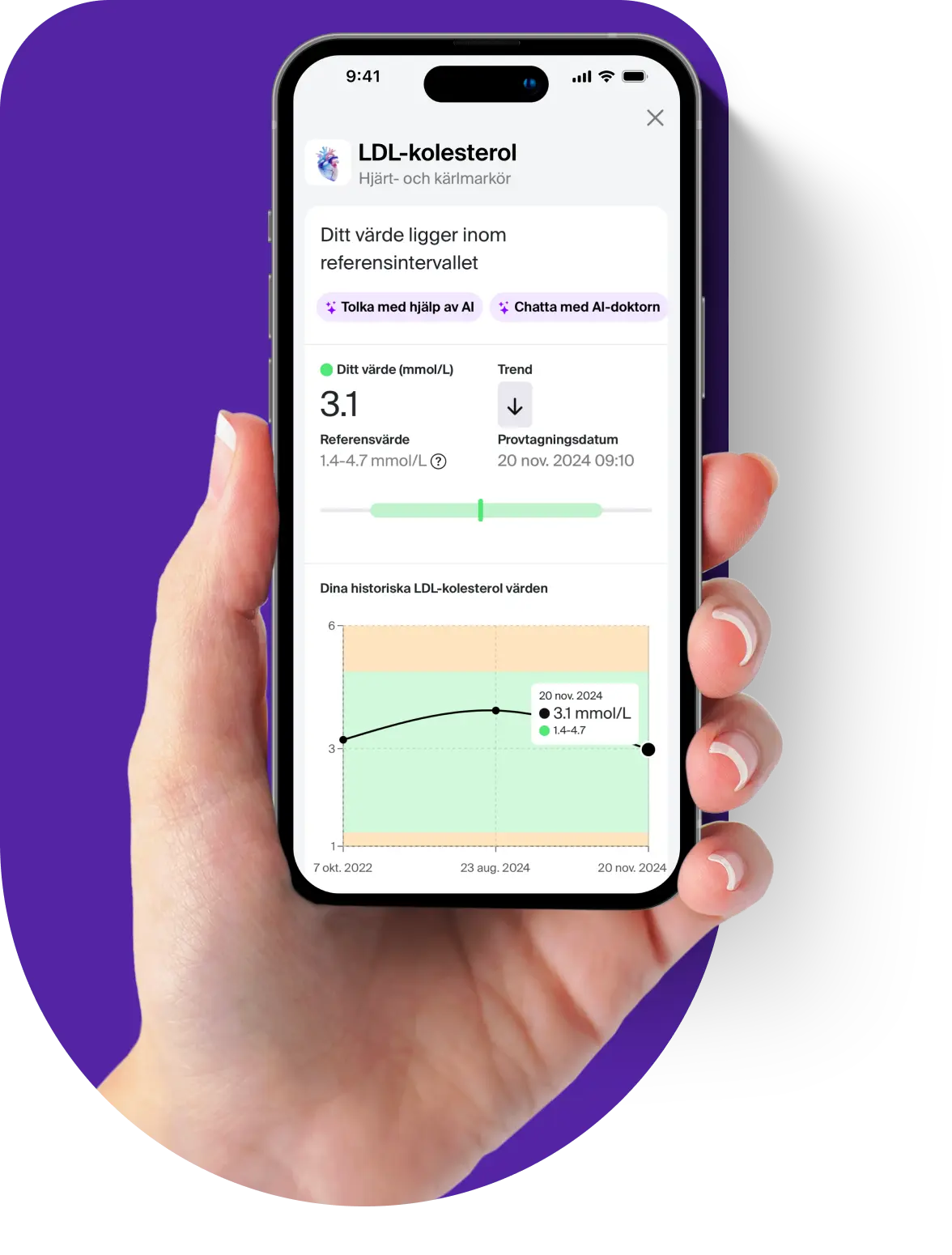Holotranscobalamin – a more reliable marker than total B12
Holotranscobalamin measures the active part of B12 that can truly be used by the cells. Since holotranscobalamin levels reflect the amount of active B12, the value often drops before total B12 levels are affected. This makes holotranscobalamin a more sensitive and reliable marker for detecting an early or functional B12 deficiency. Combined with other markers such as methylmalonic acid (MMA) and homocysteine, holotranscobalamin levels provide a complete picture of the body’s B12 status and can help prevent long-term neurological or hematological damage.
The function of holotranscobalamin in the body
When the small intestine absorbs vitamin B12, it binds to two transport proteins: haptocorrin and transcobalamin II. Only transcobalamin II forms holotranscobalamin, which is then transported into the cells via their receptors. Once inside the cell, the vitamin is released to participate in vital functions such as:
- DNA synthesis: Vitamin B12 is needed for cells to copy their DNA and divide normally. It also helps convert homocysteine into methionine – an important building block for new cells and proteins.
- Blood formation: The vitamin plays a crucial role in the production of red blood cells in the bone marrow. In cases of B12 deficiency, this process is disrupted, which can lead to anemia.
- Nervous system: B12 helps protect and repair nerves. It prevents the buildup of harmful substances such as methylmalonic acid and helps maintain myelin, the protective sheath around nerve cells.
When should I test for holotranscobalamin?
If you experience fatigue, dizziness, concentration difficulties, numbness, or psychological symptoms such as depression or low mood, it may be due to a vitamin B12 deficiency. Testing is especially important if you:
- follow a vegan or vegetarian diet
- are older and have reduced stomach acid production
- have celiac disease, Crohn’s disease, or atrophic gastritis
- have undergone gastrointestinal surgery (e.g., gastric bypass)
- are undergoing long-term treatment with metformin or proton pump inhibitors
How to improve your B12 levels
If you suffer from a B12 deficiency, you can often improve your status through diet or supplements. Animal products such as meat, fish, eggs, and dairy are rich in vitamin B12. If you follow a vegetarian or vegan diet, regular supplementation is often required to maintain normal levels of vitamin B12. In cases of severe B12 deficiency, injections may be necessary, especially if you have impaired absorption or autoimmune gastritis.






























